第15章
Mrs. Pasmer philosophised the case with a clearness and a courage which gave her husband a series of twinges analogous to the toothache, for a man naturally shrinks from such bold realisations. She said Alice had the beauty of a beauty, and she had the distinction of a beauty, but she had not the principles of a beauty; there was no use pretending that she had. For this reason the Prince of Wales's set, so accessible to American loveliness with the courage of its convictions, was beyond her;and the question was whether there was money enough for a younger son, or whether, if there was, a younger son was worth it.
However this might be, there was no question but there was now less money than there had been, and a great deal less. The investments had not turned out as they promised; not only had dividends been passed, but there had been permanent shrinkages. What was once an amiable competency from the pooling of their joint resources had dwindled to a sum that needed a careful eye both to the income and the outgo. Alice's becoming a young lady had increased their expenses by the suddenly mounting cost of her dresses, and of the dresses which her mother must now buy for the different role she had to sustain in society. They began to ask themselves what it was for, and to question whether, if she could not marry a noble Englishman, Alice had not better marry a good American.
Even with Mrs. Pasmer this question was tacit, and it need not be explained to any one who knows our life that in her most worldly dreams she intended at the bottom of her heart that her daughter should marry for love. It is the rule that Americans marry for love, and the very rare exception that they marry for anything else; and if our divorce courts are so busy in spite of this fact, it is perhaps because the Americans also unmarry for love, or perhaps because love is not so sufficient in matters of the heart as has been represented in the literature of people who have not been able to give it so fair a trial.
But whether it is all in all in marriage, or only a very marked essential, it is certain that Mrs. Pasmer expected her daughter's marriage to involve it. She would have shrunk from intimating anything else to her as from a gross indecency; and she could not possibly, by any finest insinuation, have made her a partner in her design for her happiness. That, so far as Alice was concerned, was a thing which was to fall to her as from heaven; for this also is part of the American plan.
We are the children of the poets, the devotees of the romancers, so far as that goes; and however material and practical we are in other things, in this we are a republic of shepherds and shepherdesses, and we live in a golden age; which if it sometimes seems an age of inconvertible paper, is certainly so through no want of faith in us.
Though the Pasmers said that they ought to go home for Alice's sake, they both understood that they were going home experimentally, and not with the intention of laying their bones in their native soil, unless they liked it, or found they could afford it. Mrs. Pasmer had no illusions in regard to it. She had learned from her former visits home that it was frightfully expensive; and, during the fifteen years which they had spent chiefly abroad, she had observed the decay of that distinction which formerly attended returning sojourners from Europe. She had seen them cease gradually from the romantic reverence which once clothed them, and decline through a gathering indifference into something like slight and compassion, as people who have not been able to make their place or hold their own at home; and she had taught herself so well how to pocket the superiority natural to the Europeanised American before arriving at consciousness of this disesteem, that she paid a ready tribute to people who had always stayed at home.
In fact Mrs. Pasmer was a flatterer, and it cannot be claimed for her that she flattered adroitly always. But adroitness in flattery is not necessary for its successful use. There is no morsel of it too gross for the condor gullet and the ostrich stomach of human vanity; there is no society in which it does not give the utterer instant honour and acceptance in greater or less degree. Mrs. Pasmer, who was very good-natured, employed it because she liked it herself, and knowing how absolutely worthless it was from her own tongue, prized it from others.
She could have rested perfectly safe without it in her social position, which she found unchanged by years of absence. She had not been a Hibbins for nothing, and she was not a Pasmer for nothing, though why she should have been either for something it would not be easy to say.
But while confessing the foibles of Mrs. Pasmer, it would not be fair to omit from the tale of her many virtues the final conscientiousness of her openly involuted character. Not to mention other things, she instituted and practised economies as alien to her nature as to her husband's, and in their narrowing affairs she kept him out of debt. She was prudent;she was alert; and while presenting to the world all the outward effect of a butterfly, she possessed some of the best qualities of the bee.
With his senatorial presence, his distinction of person and manner, Mr.